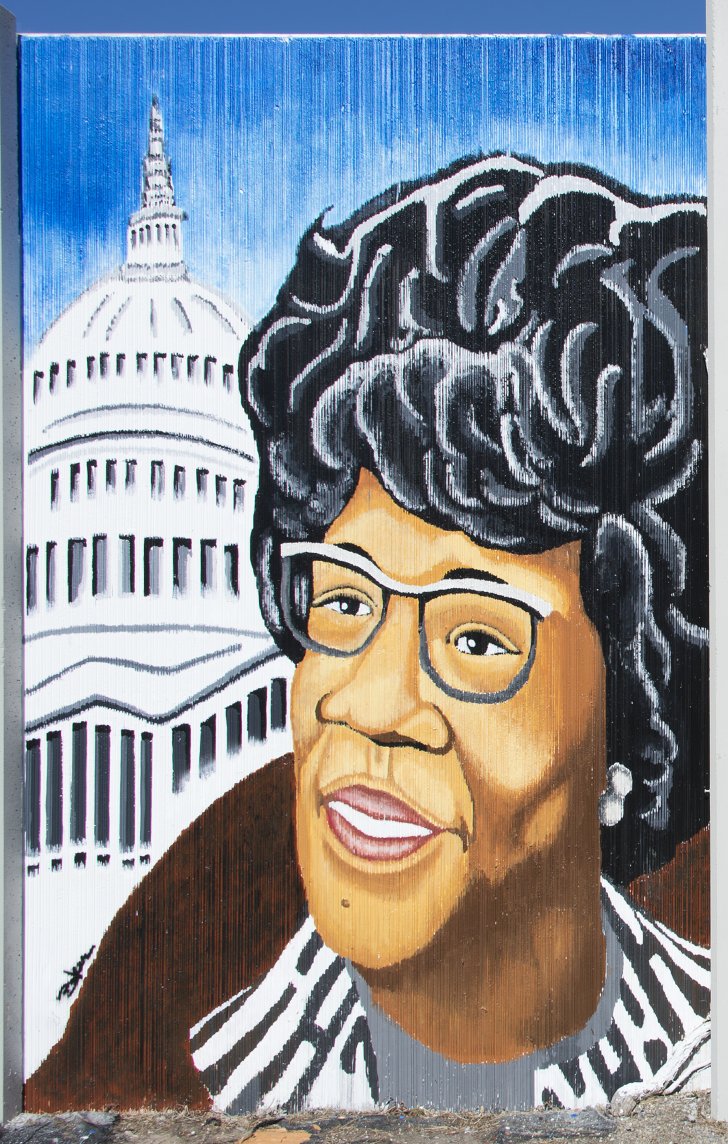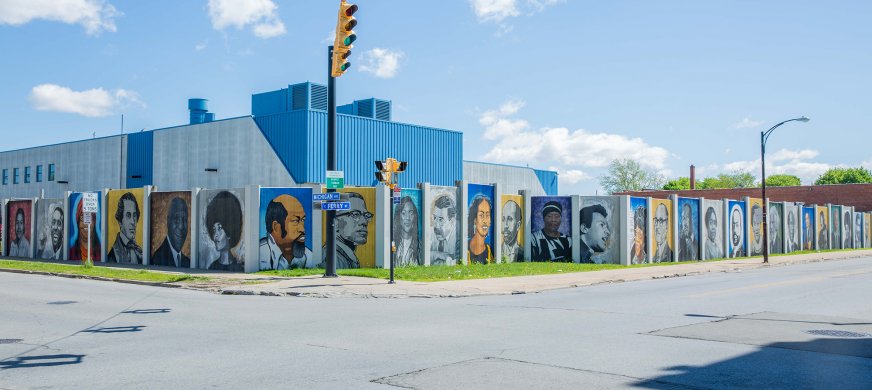Shirley Chisholm

John Baker’s portrait of Shirley Chisholm for The Freedom Wall, 2017. Photograph by Tom Loonan.
Shirley Chisholm’s life was one of historic firsts: she was the first African American woman elected to Congress and both the first African American and the first woman to compete in the presidential primaries for a major political party. However, the true significance of her legacy exceeds these firsts and lies in her unwavering commitment to the people she represented in office. Announcing her candidacy in 1972, Chisholm declared, “I am not the candidate of black America, although I am black and proud. I am not the candidate of the women’s movement of this country, although I am a woman, and I am equally proud of that. . . . I am the candidate of the people of America.”
In 1960, Chisholm, who had been politically active for decades, began seriously challenging the local Democratic Party on their refusal to support African American candidates. After assisting several other candidates run for office, Chisholm succeeded in being elected to the New York State Legislature in 1964, becoming only the second African American woman to serve in Albany. During her four years in the Assembly, Chisholm created important programs proving financial and academic assistance for college students of color and unemployment insurance for domestic workers. In 1968, she ran a successful grassroots campaign for Congress. During her fourteen-year tenure, she worked to establish federal funding for day care centers, increase the minimum wage, and promote job-training initiatives. While her 1972 bid for president ended in defeat, her high-energy campaign opened up important discussions about who and what the Democratic Party stood for and paved the way for later female and African American presidential candidates. After retiring from Congress in 1983, Chisholm lived for several years in Buffalo, the hometown of her second husband, Arthur Hardwick, Jr., and she is buried in Forest Lawn Cemetery.
